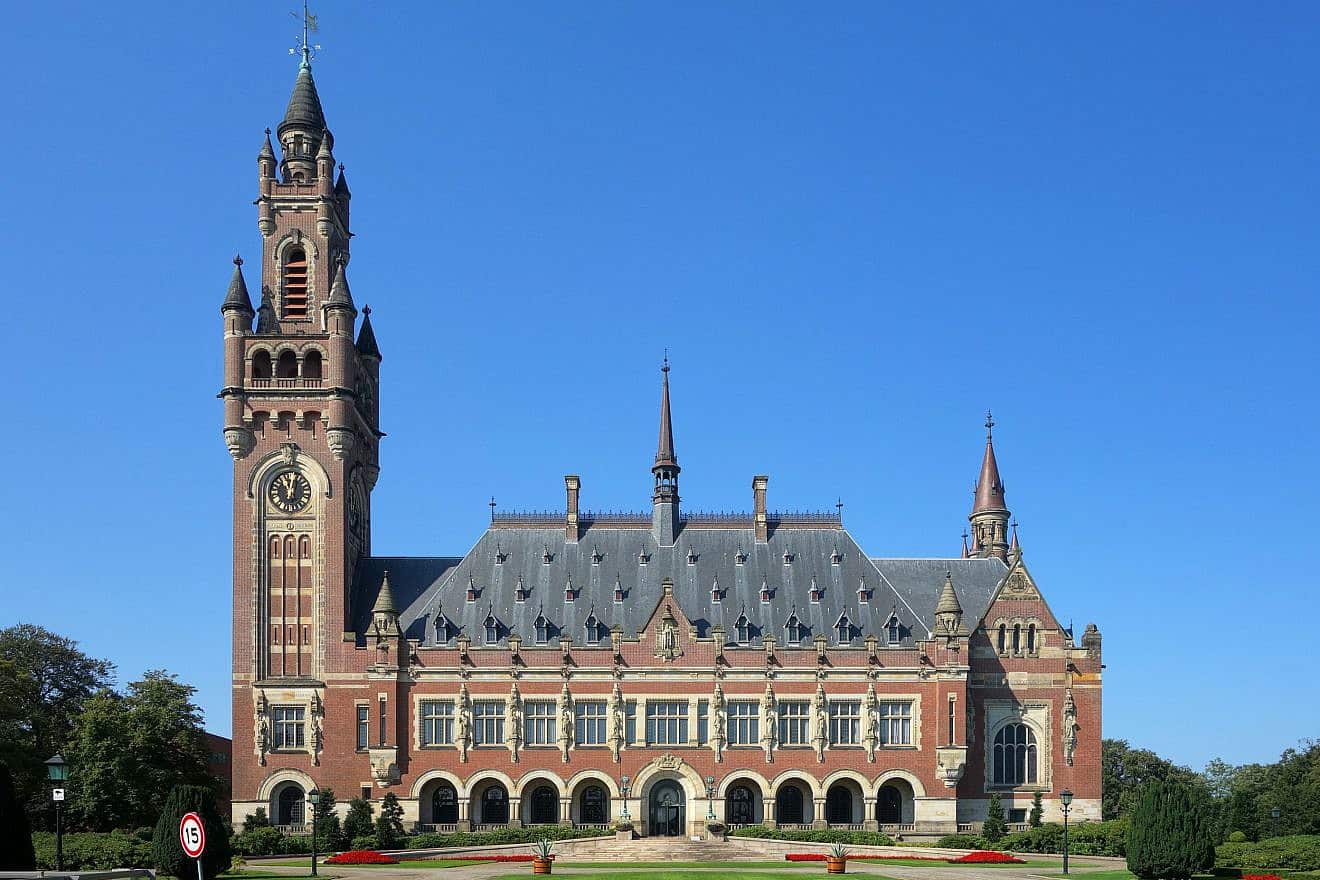Public hearings opened at the International Court of Justice in the Hague (ICJ) on Monday regarding the legal repercussions of Israel’s “ongoing occupation” of Judea, Samaria and eastern Jerusalem.
The court is hearing arguments due to a request submitted by the U.N. General Assembly pursuant to a Dec. 30, 2022, resolution calling for an examination of the “Legal Consequences arising from the Policies and Practices of Israel in the Occupied Palestinian Territory, including East Jerusalem.”
Hearings will be conducted for a full week at the Peace Palace in The Hague, the seat of the court.
Hearings opened with an oral statement by the “State of Palestine.”
Fifty-two states and three international organizations will participate in the oral proceedings before the court. Among the countries presenting are Belize, Bolivia, the Comoros, Cuba, the Maldives, Namibia and Syria.
In line with a decision made late last week, Israel has chosen not to send a representative, saying the court lacks jurisdiction to consider the matter.
The Prime Minister’s Office in Jerusalem said in a statement on Monday that “Israel does not recognize the legitimacy of the proceedings of the international court in The Hague regarding ‘the legality of the occupation,’” calling it “an effort designed to infringe on Israel’s right to defend itself against existential threats.”
The proceedings are “part of the Palestinian attempt to dictate the results of the diplomatic settlement without negotiations. We will continue to reject this; the government and the Knesset are united in rejecting this unacceptable course of action,” the PMO added.
In December, Prime Minister Benjamin Netanyahu called the U.N. resolution “disgraceful,” adding, “The Jewish people is not occupying its land and is not occupying its eternal capital Jerusalem. No U.N. resolution can distort this historical truth.”
UK Lawyers for Israel (UKLFI) CEO Jonathan Turner told JNS that the PLO delegation to the United Nations and its supporters want the ICJ to rule that Israel is occupying Judea, Samaria and the Gaza Strip, areas captured in the 1967 Six-Day War.
“The verdict won’t be legally binding, but a lot of people will regard it as authoritative and treat it as if it were an accurate statement of the law. It will be quite difficult to displace it in anything but the most friendly tribunals,” said Turner.
An adverse verdict might also impact the actions of the International Criminal Court, he said. In March 2021, the ICC announced its intention to investigate alleged Israeli war crimes, but it has been slow to act on that decision, he added.
Turner was the principal author of a Sept. 29 memorandum submitted to the court challenging the allegations against Israel.
The International Court of Justice, which has its seat in The Hague, is the principal judicial organ of the United Nations.


























